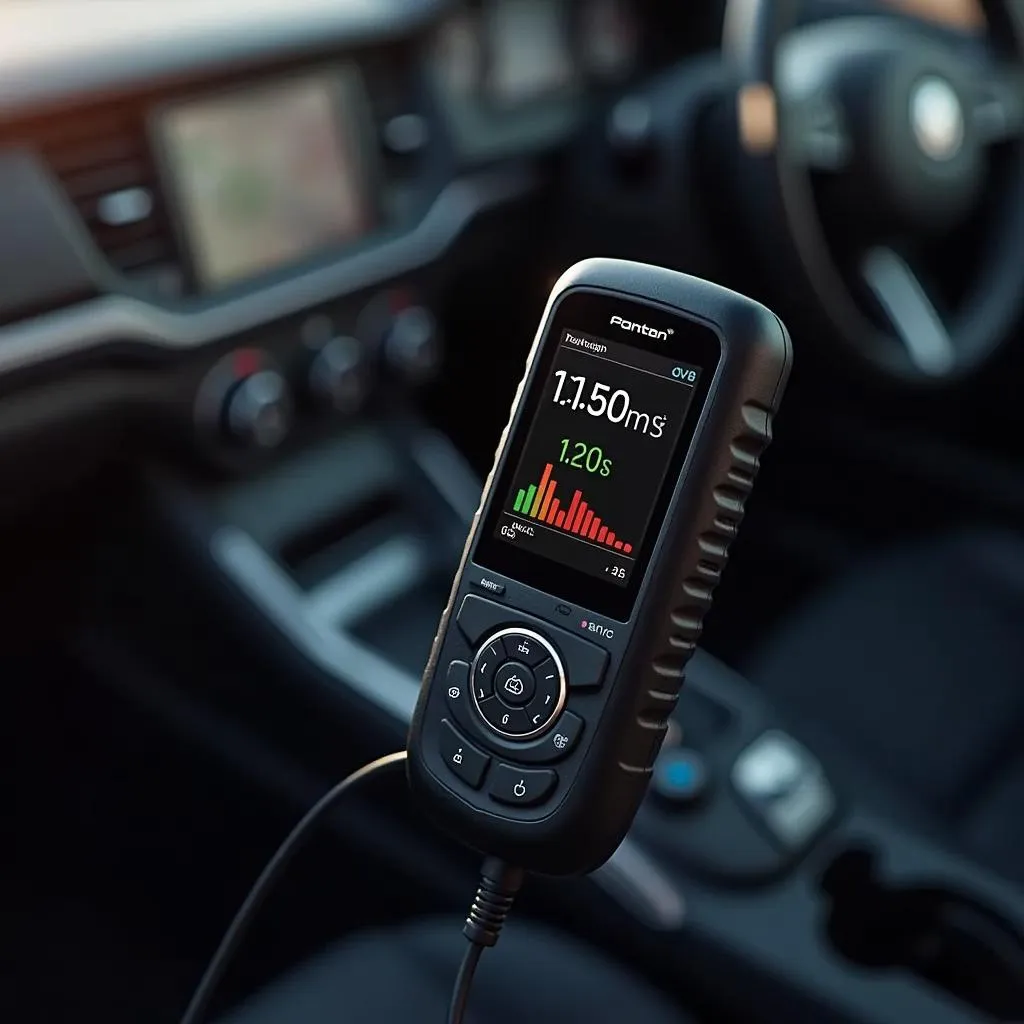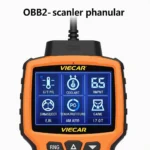An OBD2 scanner for torque can be a powerful tool for car enthusiasts and DIY mechanics alike. It allows you to tap into your vehicle’s computer system, reading and interpreting data related to engine torque, among other crucial performance parameters. But how do you choose the right scanner for your needs? This guide will delve into the world of OBD2 scanners for torque, equipping you with the knowledge to make an informed decision.
Understanding Torque and Why It Matters
Before diving into the specifics of OBD2 scanners, let’s clarify what torque is and why it’s a key indicator of your car’s performance. Torque, simply put, is the rotational force produced by your engine. It’s what gets your car moving from a standstill and what helps you accelerate and overtake other vehicles.
Monitoring your car’s torque output can provide valuable insights into its overall health. A significant drop in torque could signal a problem with your engine, transmission, or other related components. By catching these issues early, you can prevent costly repairs and keep your car running smoothly.
How an OBD2 Scanner Reads Torque Data
Your car’s Engine Control Unit (ECU) continuously monitors and adjusts various engine parameters, including torque. An OBD2 scanner designed to read torque data taps into this information stream through the OBD2 port, typically located under the dashboard. This data is then translated into a user-friendly format on the scanner’s display, allowing you to see your engine’s torque output in real-time.
Choosing the Right OBD2 Scanner for Torque Monitoring
With countless OBD2 scanners available on the market, selecting the one best suited for your needs can feel overwhelming. When your primary goal is monitoring torque, keep these factors in mind:
- Compatibility: Ensure the scanner is compatible with your car’s make, model, and year.
- Data Parameters: Verify the scanner can specifically read and display torque data.
- Data Logging: If you want to record and analyze torque data over time, opt for a scanner with data logging capabilities.
- Additional Features: Some scanners offer extra features like horsepower calculations, fuel economy readings, and error code definitions, enhancing their functionality.
Benefits of Using an OBD2 Scanner for Torque Monitoring
Investing in an OBD2 scanner specifically for monitoring torque offers numerous benefits:
- Early Problem Detection: Identify potential issues like a failing sensor or a clogged air filter before they escalate into major engine problems.
- Improved Performance Tuning: Fine-tune your car’s performance by monitoring torque output in response to modifications or adjustments.
- Enhanced Driving Experience: Understand your car’s power band and optimize your driving style for improved fuel efficiency or a sportier feel.
- Cost Savings: Prevent costly repairs by addressing potential problems proactively and avoid unnecessary maintenance.
FAQs about OBD2 Scanners for Torque
Q: Can I use any OBD2 scanner to read torque?
A: Not all OBD2 scanners are created equal. Some basic models may not offer torque readings. Ensure the scanner you choose specifically lists torque as a measurable parameter.
Q: Is it difficult to use an OBD2 scanner for torque monitoring?
A: Most modern OBD2 scanners are very user-friendly. They typically connect wirelessly to your smartphone or tablet, providing an intuitive interface for reading and interpreting data.
Q: How accurate are the torque readings from an OBD2 scanner?
A: While OBD2 scanners offer a convenient way to monitor torque, it’s important to note that the readings are not always 100% accurate. They are estimations based on various sensor inputs. However, they provide a valuable relative measure for detecting significant fluctuations in your car’s torque output.
Conclusion
An OBD2 scanner for torque can be a valuable asset for any car enthusiast or DIY mechanic. It empowers you with real-time insights into your engine’s performance, enabling you to detect potential problems early, optimize your driving experience, and potentially save on costly repairs. When selecting an OBD2 scanner, prioritize compatibility, data parameters, and additional features that align with your individual needs and preferences. By making an informed choice, you can unlock a wealth of information about your car’s performance and ensure a smoother, more enjoyable driving experience.
Need help choosing the right OBD2 scanner for your needs? Contact our expert team via WhatsApp: +1(641)206-8880, or Email: [email protected]. We offer 24/7 customer support to assist you in finding the perfect tool for your automotive needs.


